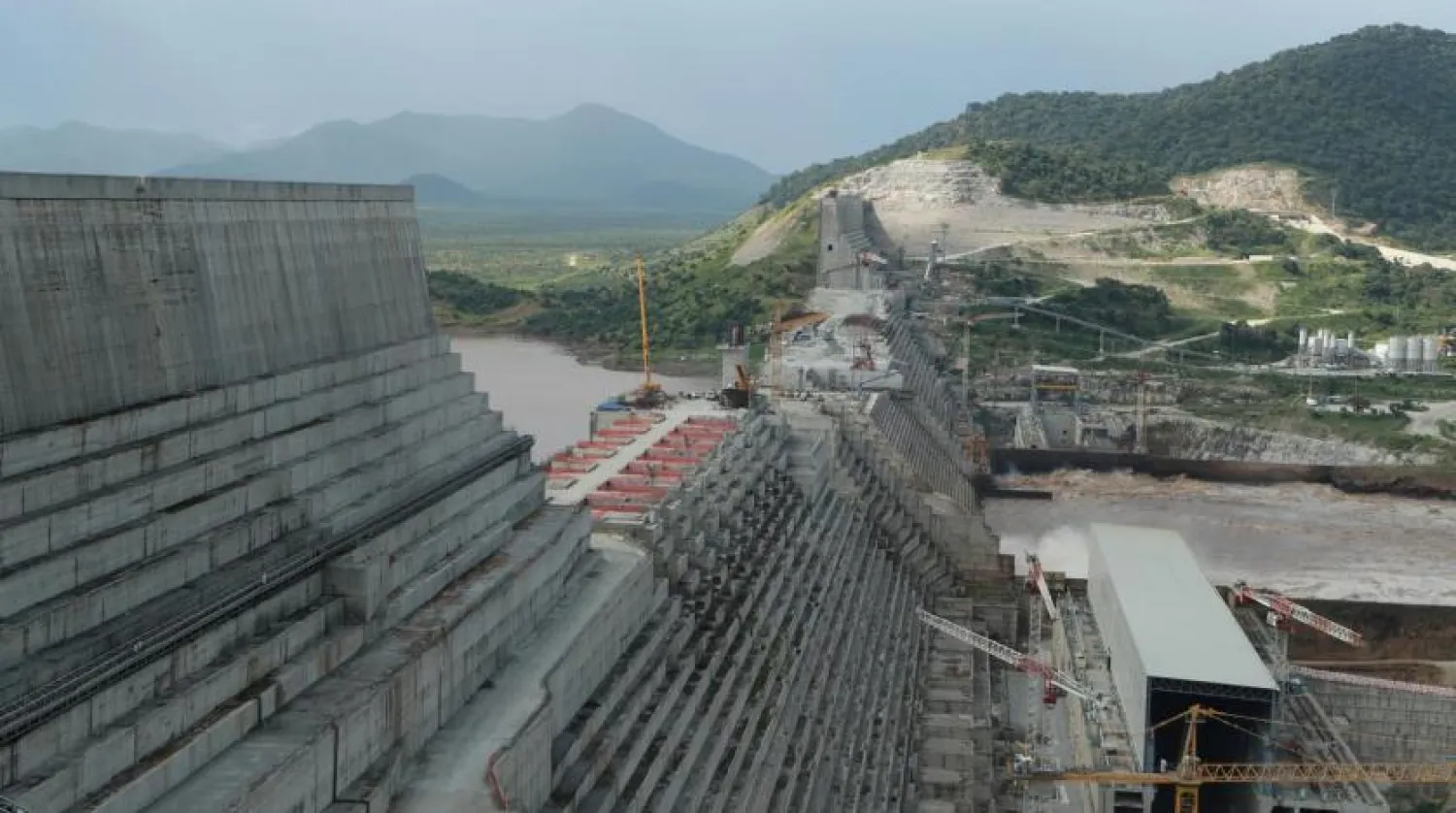The Arab Parliament expressed support for Egypt and Sudan after Ethiopia announced its unilateral operation of the mega-dam it is building on the Blue Nile.
The Parliament slammed Addis Ababa’s “rejected” move, noting that it represents a “serious violation of the water rights” of the two downstream countries.
Ethiopia started on Sunday its “limited” operation of 13 turbines of the Grand Ethiopian Renaissance Dam, as a first stage for electricity production.
But Cairo denounced the start-up, saying Addis Ababa was “persisting in its violations” of a 2015 Declaration of Principles, which prohibits any of the parties from taking unilateral actions in the use of the river’s water.
According to official media, only one of 13 turbines is currently operational, with a capacity of 375 megawatts.
Arab Parliament Speaker Adel al-Asoumi denounced in a statement on Monday Ethiopia’s announcement.
He said Addis Ababa’s step is a clear violation of international and bilateral agreements regulating the use of the Nile River's waters as an international river.
“These include Ethiopia’s pledges signed by its Prime Minister in the 2015 declaration of principles agreement,” he said.
He urged Addis Ababa to refrain from unilateral actions that would harm the water interests of the downstream countries.
“These actions will not change the legal and historical nature of the internationally recognized water quotas for Egypt and Sudan,” added Asoumi.
He reiterated the Parliament’s firm stance on reaching a legally binding agreement to fill and operate the Grand Ethiopian Renaissance Dam (GERD) without harming Egypt and Sudan’s water interests.
He underscored the Parliament’s support to the measures both countries would take to preserve their water rights as an “integral part of Arab national security.”
GERD is set to be the largest hydroelectric dam in Africa but has been a center of dispute with downstream nations Egypt and Sudan ever since work first began in 2011.
The last round of talks between Egypt, Sudan and Ethiopia in Kinshasa ended in early April 2021 with no progress made. Ethiopia refused then to involve the quartet in GERD talks and renewed its commitment to the AU-led talks.
In mid-September, the UN Security Council called on the three countries to resume negotiations under the auspices of the AU, stressing the need to reach a “binding agreement on the filling and operation of the dam within a reasonable timetable.
The $4.2-billion project is ultimately expected to produce more than 5,000 megawatts of electricity, more than doubling Ethiopia's electricity output.









